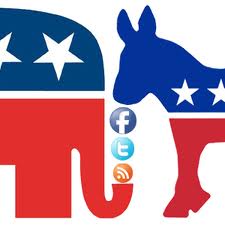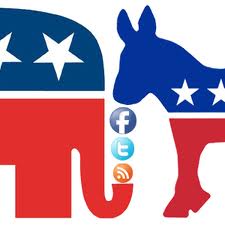After the PR disasters surrounding SOPA and PIPA, most people don’t think of politicians as being particularly technologically aware, but if there’s one place where technology will be used to the full, it’s the US presidential election.

The campaigning team for Obama is huge, and includes some of the foremost computing experts, statisticians, and computer programmers. These experts are being used for data mining, number crunching, poll forecasting, and campaigning.
Campaigners Know More Than You Think
Modern campaigns don’t rely on a blanket approach. Even though technologies such as IP telephony and fixed mobile convergence make it easy for campaigners to reach out to a range of people; the goal is to avoid wasting effort. Campaigners can target their spending, and their time investment, accurately and cost effectively.
They can link electoral roll data with other commercially available data, including magazine subscriptions, home ownership records, and even gun licenses, to see who may be sympathetic to the cause, and who is a “lost cause” when it comes to votes. This, combined with extensive simulations and number-crunching, makes it easy to figure out who to direct campaign efforts towards.
Battles Fought on the Internet
Phone campaigns, leaflet drops, and doorstep canvassing, have all been going on for years, but they’re not the only ways that campaigners work. Today, they make use of every single tool in the modern unified communications arsenal. While they’re out on the road running media meetings, making public appearances, and attending conferences, the wonders of fixed mobile convergence means that they’re always available in an emergency.
Obama, and his rivals for that matter, aren’t scared of technology. They’re Tweeting, posting to Instagram, running campaigns on Facebook, and answering emails. They’ve even tweaked their websites to get the best possible response from their visitors.
The best thing about unified communications, from the point of view of a politician and his supporters, is that it allows all of this campaigning to be done cheaply and effectively. Instead of spending a fortune on leaflets that will end up in the bin, or wasting thousands of man hours calling people who aren’t interested in hearing what the campaigner has to say, politicians can now focus their message. Facebook allows advertisers to put their message in front of people who live in a certain area, have particular interests, or have put themselves down as having specific political leanings. Such specific targeting is a dream come true for advertisers.
Nothing Comes For Free
Over the last year or two, Facebook has become a much busier platform, with almost every brand, political group, and cause putting together a presence on the site. This can be a problem for campaigners, as it means that it’s harder for campaigns to go viral. The average user’s stream is cluttered with messages from hundreds of friends, so there’s a chance that a post from a political group will be pushed out of the stream before it’s even seen, let alone acted upon.
This means that campaigners have to work harder, put their message on more platforms, and be much more persistent. Only the most adaptable, and skilled campaigners will succeed.
This post was written by James Harper on behalf of Maintel, the communications expert. James writes on technology and communications.
